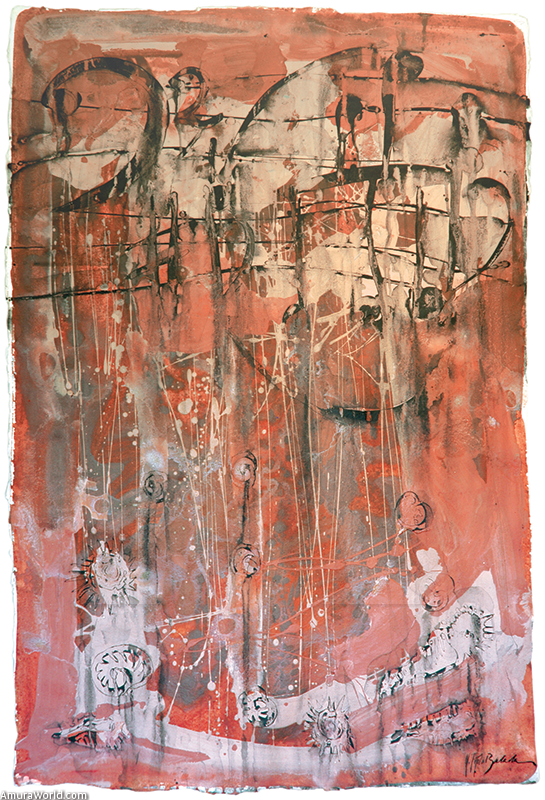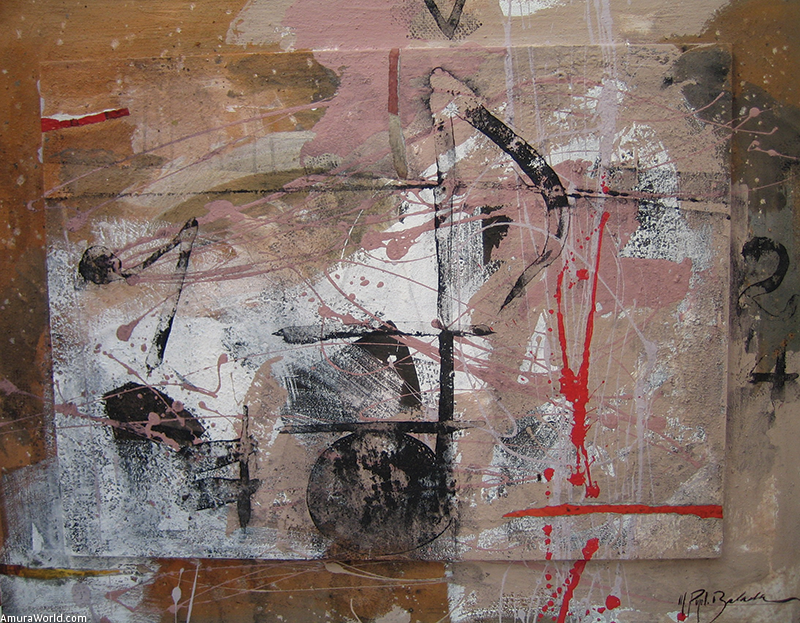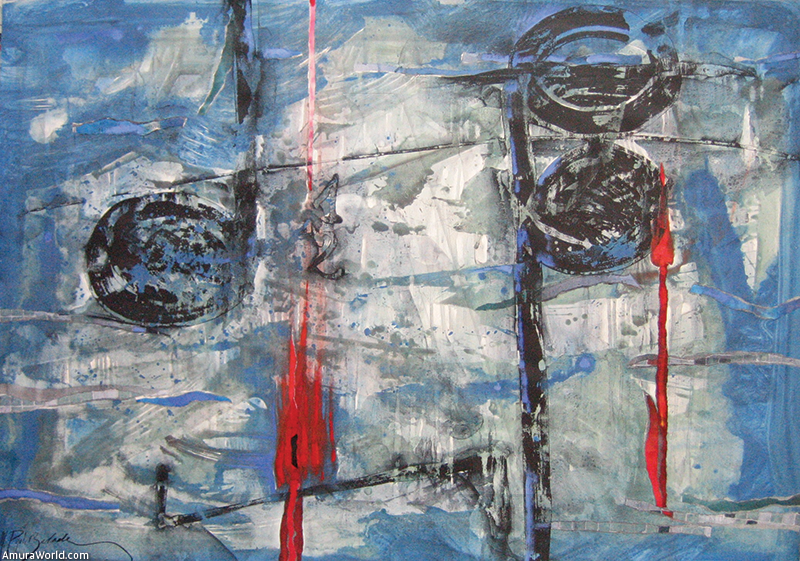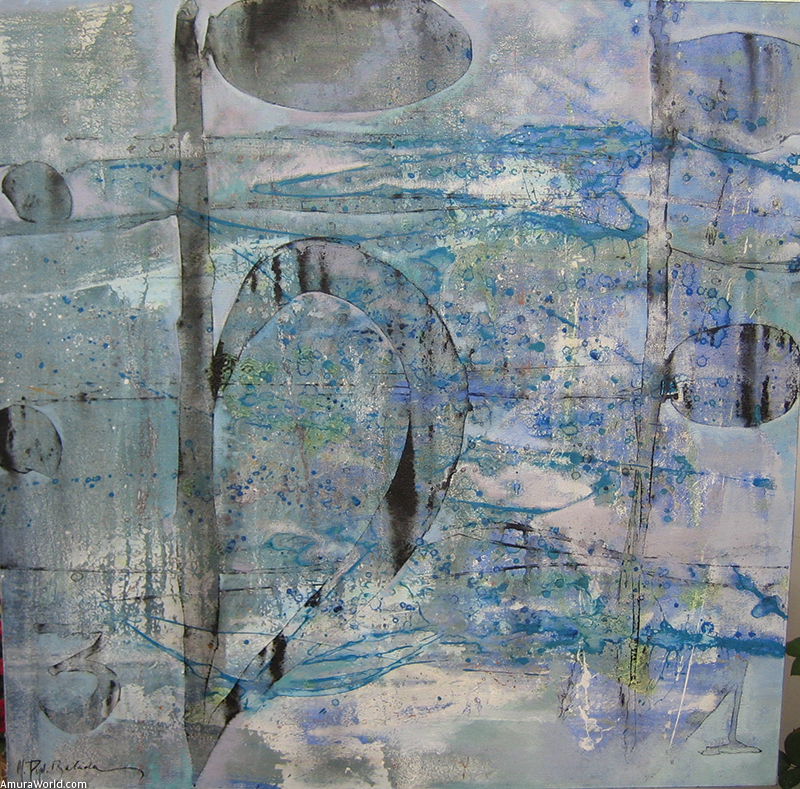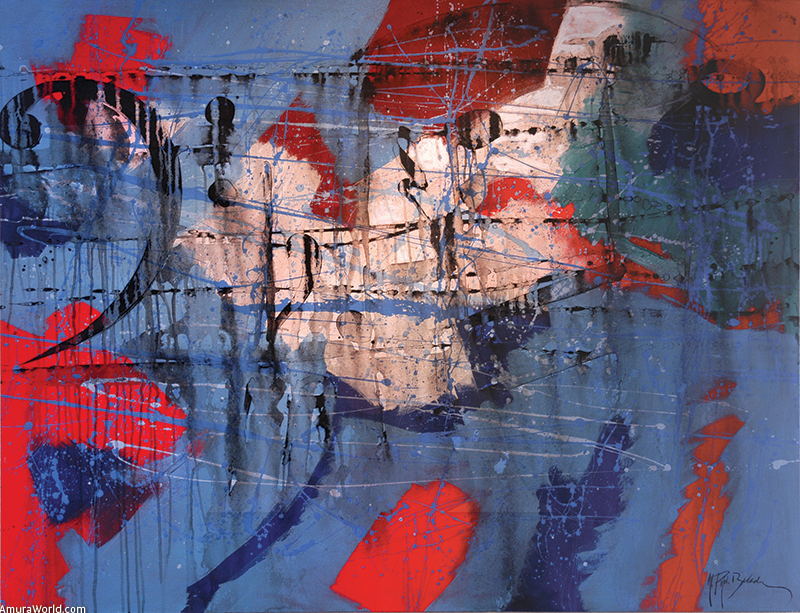A very Mexican Artist from Cataluña
Each brushstroke in the work of renowned Catalan painter Manuel Pujol Baladas mirrors not only the artist’s personal talent, but also deep feelings and experiences.
For this reason the artist considers the act of painting to be a state of impersonation where people stop being themselves and suddenly become artists. ‘The advantage that we have as painters is that everyone dares to paint”, he says.
For the artist, it isn’t easy speaking about his work. Still, he considers his artistic style to fall within Abstract Expressionism, influential since the 19S(Ts and 60’s, when art movements were still big. “We’re a little bit like the children of these movements”.
Regarding the art world’s current state of affairs, he indicated that now luckily “there are no movements that define how to paint, which means that it’s much freer, there isn’t any one school that sets the standard”. He added that the art movement past has finished, and that now artists are more individualist.
Speaking of himself, the artist spoke of personal writings each day, of a visual language which essentially represents how he feels.
“I define myself as M. Pujol Baladas”. He added that his painting fell within Abstract Expressionism, a broad concept which accommodates many ideas, from near figurative language to abstraction.
Inspiration
The artist has painted about music, poetry, sex and every adventure and misfortune of the human race. His work “reflects my current state of awareness, what I'm thinking and feeling. In a certain way you get naked on canvass. I’ve painted about nearly everything but, in essence, I paint about feeling, what happens emotionally”.
Asked about his source of inspiration, he said that music figured prominently. “I paint feelings and emotions produced by pieces of music. Often I’ll add musical language, writing and signs to identify it. I like musical symbols and notes, and I’m fascinated by their esthetic, something beautiful, very structured, a very special language, and a rhythm”.
For the artist, Mexican culture has been able to conserve many of its customs and traditions, still continues to be alive, which explains his dedication of ample work to the Huapango de Moncayo. “I did an homage to Mexico through 75 pieces dedicated to this musical masterpiece, Every time I listen to it, my hair stands on end ... it’s that emotional”.
Literature has also been a motivating force. When he arrived in Mexico several years ago, he received an invitation at the Universidad Veracruzana to give visual expression to poems by Constantino Cavafis: “It was a beautiful experience for me to discover an entire world and give visual expression to poetry”.
In this same way, he reveals a nation’s culture through his work. For example, Mexican tradition has inspired him to paint about death. “The Day of the Dead celebration opens an entire world which you translate into painting. For this reason I dedicated an entire series to the dead”.
By looking closely, we discover that gestures represented in the artist’s work are consistent; the expression and visual impact of each stroke, their feeling and color, do not vaiy. To which he says: “each of us has our own special diction. The final results of any work are the elements that make it identifiable”.
Also worth noting is that each time he starts to paint something he always has a clear idea what he wishes to say and how he wants to say it. "I don’t paint from a blank; I already know what the piece is about.”
Challenge of Personal ReCreation
With respect to materials, M. Pujol Baladas spoke about how much he enjoyed paper. “I very much like it. I’ve worked many types of paper, but generally use artisan paper; in other words we make it here by hand”. Nevertheless, he has been recently leaning toward canvas. “Right now I’m going back to canvas as a base material; above all I’m working with very large sizes, which I enjoy. I like largescale painting and canvas has taken a dominant role in my production”. His work right now is about 60 percent canvas and 40 percent paper.
He has been very versatile, having used canvas, paper, cardboard and hard materials such as lamina, etc. for his work.
Looking at his own painting, he talks about a freedom he would have enjoyed had he broken with the past (i.e., Dali) much earlier. “I was nicely set up with a language that came easy to me, until one realizes that it isn’t your language and you must make a break even though you get bloodied for it”. As a result, his current work is not more than the sum of his own inspiration, experiences and feelings.
Despite this, M. Pujol Baladas would like to once again break the past and recreate himself. “At this point, I’m afraid of not breaking anything; my work and I understand each other perfectly, we’re one and the same and I’m content. The problem is that I don’t want to be so happy; I prefer being hungry again, going back to the beach where the ocean begins and seeking out the horizon to see what’s out there. I need to become passionate again, discover, live, so that one day they can say: “Hey man, what’s up? This is way different than what you used to do.”
His collaboration with Dali during so many years left its impact. Although he began there, however, the artist was able to find his own language.
He accepted the risk that artists take when they get too comfortable with one type of visual language. “You can easily fall into the temptation of sacrificing your art and becoming an artisan. Personally I’d prefer to die as an artist”. As a result, he is committed to recreating himself once again and hopes to have the strength necessary to succeed.
Despite his Catalan origin and strong Mediterranean influence, M. Pujol Baladas has managed to absorb the culture, colors, tastes, flavors, smells, music and customs of Mexico. Each day in fact his work is linked more to Mexico than where he began... of which he claims to feel proud.
Text: Ricardo Vázquez / Viridiana Barahona ± Photo: Alfadir Luna

